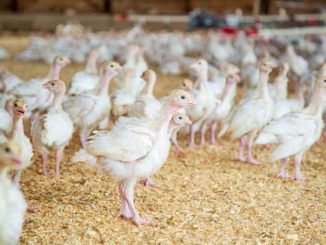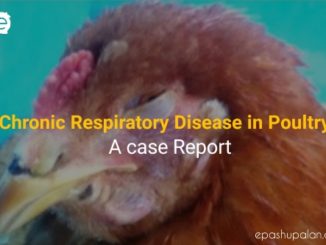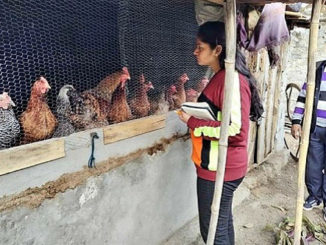Poultry sector in India is divided into organized and unorganized sector. The commercial poultry sector is organized and 80% of market share is captured by commercial sector. The organized commercial is already modernized and technically improvised.
However, Department of Animal Husbandry and Dairying, Government of India, is implementing Poultry Venture Capital Fund (PVCF) under “Entrepreneurship development and Employment generation” (EDEG) of National Livestock Mission. It is a bankable programme and the Central Government is providing subsidy through National Bank for Agricultural and Rural Development (NABARD) for those beneficiaries taking loan for PVCF.
Department of Animal Husbandry and Dairying, Government of India, is implementing different programmes under National Livestock Mission under which financial assistance is provided to States/ Union Territories Governments for implementation of Rural Backyard Poultry Development (RBPD) and Innovative Poultry Productivity Project (IPPP). These programmes envisage the components which take care of the shelter, feed, medicine, Equipments, Litter etc to improve the living conditions of the Poultry birds. Further, the Department of Animal Husbandry and Dairying is implementing a scheme namely “Assistance to States for control of Animal Diseases” (ASCAD) under “Livestock Health and Disease Control” (LH&DC) which covers the vaccination of economically important poultry diseases viz., Ranikhet Disease, Infectious Bursal Disease, Fowl Pox etc., including control and containment of emergent and exotic diseases like Avian Influenza. Department has developed Action plan for Preparedness, Control and Containment of Avian Influenza which was formulated in 2005 and revised in 2006, 2012 and 2015.
Under the LH&DC scheme financial assistance is provided to the States for upgradation of District Diagnostic Laboratories. In addition, there are six Regional Disease Diagnostic Laboratories for prompt and effective diagnosis of different Livestock and poultry Diseases. A National Institute of High Security Animal Diseases (NIHSAD), Bhopal under Indian Council of Agricultural Research (ICAR) has been specially designated as National Referral Laboratory for diagnosis of Avian Influenza which is also financially assisted by the Department of Animal Husbandry and Dairying for diagnosis of Avian Influenza.
As regards to waste management, the ICAR –Central Avian Research Institute (CARI), Izatnagar, Bareilly has developed two pilot scale technologies for waste management and adoption of new renewable energy:
- Dilution, Acidification and Carbonization (DAC) technology used for all weather biogas generation exclusively from poultry excreta and further utilization of it is used as manure in agriculture. The signifying point of this technology is that only poultry excreta are required for biogas production. Used slurry has good manure value and germination potential (>90%), hence can be easily applied in agricultural fields without burning effect on plants which is a common problem with crude poultry excreta. The overall impact of this technology is to alleviate environmental pollution, economize poultry production and generate additional income at poultry establishments.
- Aerobic composting of poultry wastes (litter, excreta, hatchery waste, slaughter waste, mortalities etc.) has been standardized using various poultry wastes and carbonaceous material (tree leaves, grasses and other plant wastes) for conversion into manure for utilization in organic crop farming as an alternative to chemical fertilizers.
These two technologies reduce pollutants, bad odour and flies from poultry establishments. ln addition, preparation of vermi-compost from poultry litter waste (cage litter) is also being practiced at ICAR institutes.
As regards to adoption of new renewable energy, Department of Animal Husbandry and Dairying is not implementing any such scheme. This information was given in a written reply by the Minister Of State For Fisheries, Animal Husbandry And Dairying Dr.Sanjeev Kumar Balyan in Lok Sabha today.






Be the first to comment